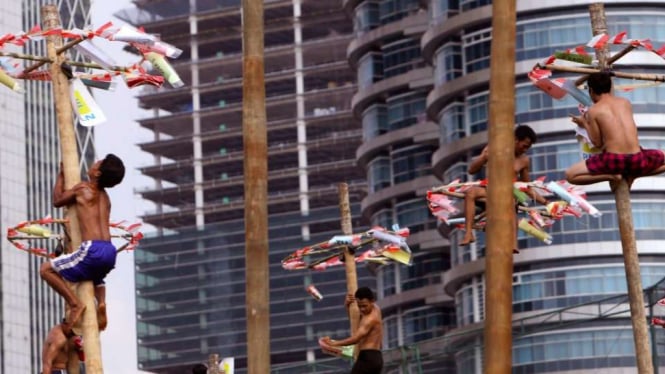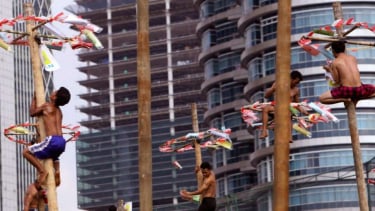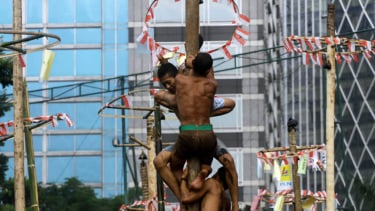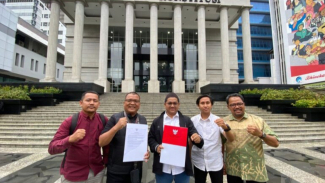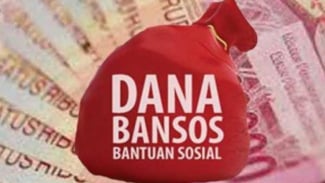The Sad History of Panjat Pinang, Dutch Entertainment in the Past
- Businessinsider.com
VIVA – Indonesia will celebrate its 77th Independence Day. Usually during the celebration of Independence Day, people hold a ceremony to raise the red and white flag, and holds various competitions, one of them is climbing areca nut or locally known as Panjat Pinang.
Panjat Pinang is a competition that is carried out by climbing areca nut or other trees that have been skinned and given a lubricant.
In Panjat Pinang, the participants will compete to be the first place, and fight over the items that have been hung on the tree. Usually, the prizes can be in the form of fans, TVs, other electronic goods, cash groceries, and others.
The Panjat Pinang competition may look entertaining, but it has a sad history, and this competition was entertainment for the Dutch colony.
As quoted from the book by Fandy Hutari, entitled 'Entertainment of the Past and Local Traditions' in 2017, before Indonesia's independence, around the 1930s, Panjat Pinang were often held by the Dutch when there were celebrations, such as weddings, birthday parties, and promotions.
Lomba Panjat Pinang Massal Meriahkan HUT RI Ke-71
- VIVA.co.id/Muhamad Solihin
Usually, only Indonesian people who take part in this competition.
Some said when the Dutch were still in control of Indonesia, they had required their colonies to commemorate Koninginnedag every August 31. The day meant to honor the birth of the Queen of the Netherlands, Wilhelmina Helena Pauline Marie van Orange-Nassau.
Because of this, all people are asked to hold various celebrations such as festivals, carnivals, entertainment, surprise markets, puppets, including the areca climbing competition. Panjat Pinang in the colonial era was called de Klimmast, which means climbing a pole.
In the 1920s, food materials such as rice, flour, bread, cheese, sugar and even clothes became contested items at the pinnacle of climbing areca. The gift was still considered luxurious by the indigenous people at that time.
The Panjat Pinang participants were divided into several teams to climb the areca nut as high as 5-9 meters. The areca nut has been greased with a lubricant. Those who become participants from the indigenous people.
When the natives struggled to climb trees to fight for prizes, the Dutch at that time actually watched and laughed. It means that the Panjat Pinang competition was originally a means of entertainment for the Dutch in Batavia.
However, when it was independent and climbing areca "only" was used as an entertainment competition, the philosophy of Panjat Pinang was more associated with cooperation, hard work, and mutual help.
